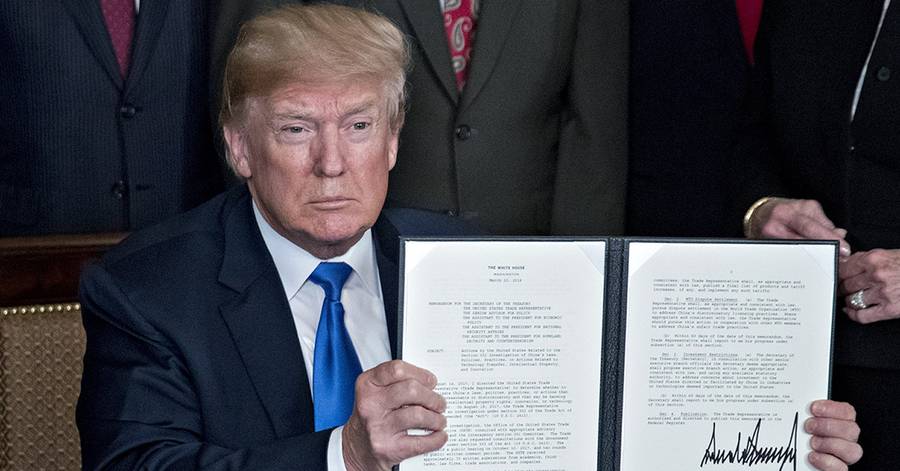By: Bobby Jindal – wsj.com – April 3, 2018
In response to Donald Trump’s election, Democrats have suddenly rediscovered the blue-collar voters and middle-class households left behind by technological innovation and global trade. Like a penitent fasting during Lent, liberal statesmen have confessed that they didn’t spend enough taxpayer money on new redistributive programs. If only they had done more of what they had wanted to do in the first place.
What else could explain the sudden rise of supposedly nativist, protectionist and isolationist forces? Or Mr. Trump’s victory, which the self-proclaimed experts failed to predict? In this case America’s elites are uncharacteristically too humble: They do not give themselves enough credit for the politics they helped create.
Mr. Trump’s populism is the direct result of the establishment’s hypocrisy. He is implementing policies that more-mainstream figures from both political parties have promised for years but then failed to accomplish. In this way, they built the demand for the actions they now denounce as destructive and even racist. Moving the U.S. Embassy in Israel to Jerusalem, pushing back against China’s unfair trade practices, securing the border—aren’t those are just empty campaign promises? No candidate thinks he can actually get them done, right? Somebody forgot to tell Mr. Trump.
Start with foreign policy. A bipartisan chorus of Washington mandarins complains that the U.S. is retreating from international leadership, creating a void increasingly filled by a rising China. Yet Mr. Trump is simply doing what his predecessors pledged to do. Before 9/11 intervened, George W. Bush promised a “humble” foreign policy and fewer overseas deployments. In 2008, Barack Obama criticized Mr. Bush for being more focused on rebuilding Iraq than America, and he promised to do the reverse. Mr. Obama opposed the Iraq surge, but as president announced his own surge in Afghanistan. Then when President Obama began to draw down troops there, he said America needed to focus on “nation-building here at home.”
Despite the rhetorical flourishes—and Mr. Obama was gifted at those—he was pilloried by the left for leaving residual U.S. forces in Iraq and Afghanistan, for selling arms to the Saudis despite their war in Yemen, for ineffectively seeking regime change in Syria and Libya, and for provoking Russia over Ukraine. Mr. Obama’s failures in execution cannot disguise the gap between his campaign rhetoric and reality. The Obama White House continued in a bipartisan tradition of saying America should not be the world’s policeman, then acting as if just the opposite were true.
On trade, Mr. Trump’s plans to impose tariffs on steel and aluminum, as well as to renegotiate the North American Free Trade Agreement, are said to risk a trade war and threaten economic destruction not seen since the Smoot-Hawley tariffs of the 1930s. Yet in 2002, President Bush imposed his own tariffs on steel, though they were temporary and more limited. During the 2008 campaign, Mr. Obama and Hillary Clinton both advocated threatening to leave Nafta as a way to negotiate better terms.
Mr. Obama’s campaign subsequently had to fight reports that it had secretly reassured the Canadian government that this was all an electoral ruse. A memo from the Canadian Consulate in Chicago described an Obama adviser as cautioning that the anti-Nafta rhetoric “should be viewed as more about political positioning than a clear articulation of policy plans.”
The campaign insisted that the adviser had been misinterpreted, and no back-channel communication had taken place. Whatever the case, Mr. Obama’s subsequent time in office confirmed the substance. While on the stump he was happy to rail against perennial trade deficits, America’s loss of good-paying manufacturing jobs, and China’s currency manipulation and intellectual property appropriation. But President Obama did nothing much to counter them.
So, too, with Mr. Trump’s signature issue: the border wall and his accompanying rhetoric against illegal immigration. He may have finally discovered the first shovel-ready infrastructure project Democrats do not want to fund. But some kind of barrier on the border has traditionally enjoyed bipartisan support or at least acceptance. In 2006, Sens. Obama and Clinton both voted for the Secure Fence Act, which President Bush signed into law. Then in 2013, every Democrat in the Senate voted for a comprehensive immigration reform that included 700 miles of border fencing. Yet today Mr. Trump’s wall is described in near-apocalyptic terms.
True enough, President Trump has wrapped his policy proposals in harsher rhetoric than his predecessors, and he threatens to go much further than they contemplated. It is also true, however, that many of his actions were previously promised by Democrats and Republicans alike. Now that there’s a politician who finally seems to be doing in office what he pledged to when campaigning, voters can be forgiven for supporting him—and for wondering why this makes him or them “deplorable.”
The lesson is that rhetoric matters. Establishment politicians have been borrowing nationalist rhetoric to win elections and then maintaining the same old activist foreign policy, free trade and lax immigration enforcement. They have spent years offering cheap talk, with no intention of following through. Now they are shocked that Mr. Trump, an outsider, does not play their sophisticated game.
If they believe in a liberal, multilateral world order, governed by institutions and rules they see as being threatened by Mr. Trump’s ethos of America First, they should make that case—but they should trust voters enough to do it honestly.
Mr. Jindal was governor of Louisiana, 2008-16.
To see this article, click read more.
 Listen Online
Listen Online Watch Online
Watch Online Find a Station in Your Area
Find a Station in Your Area










 Listen Now
Listen Now Watch Online
Watch Online
